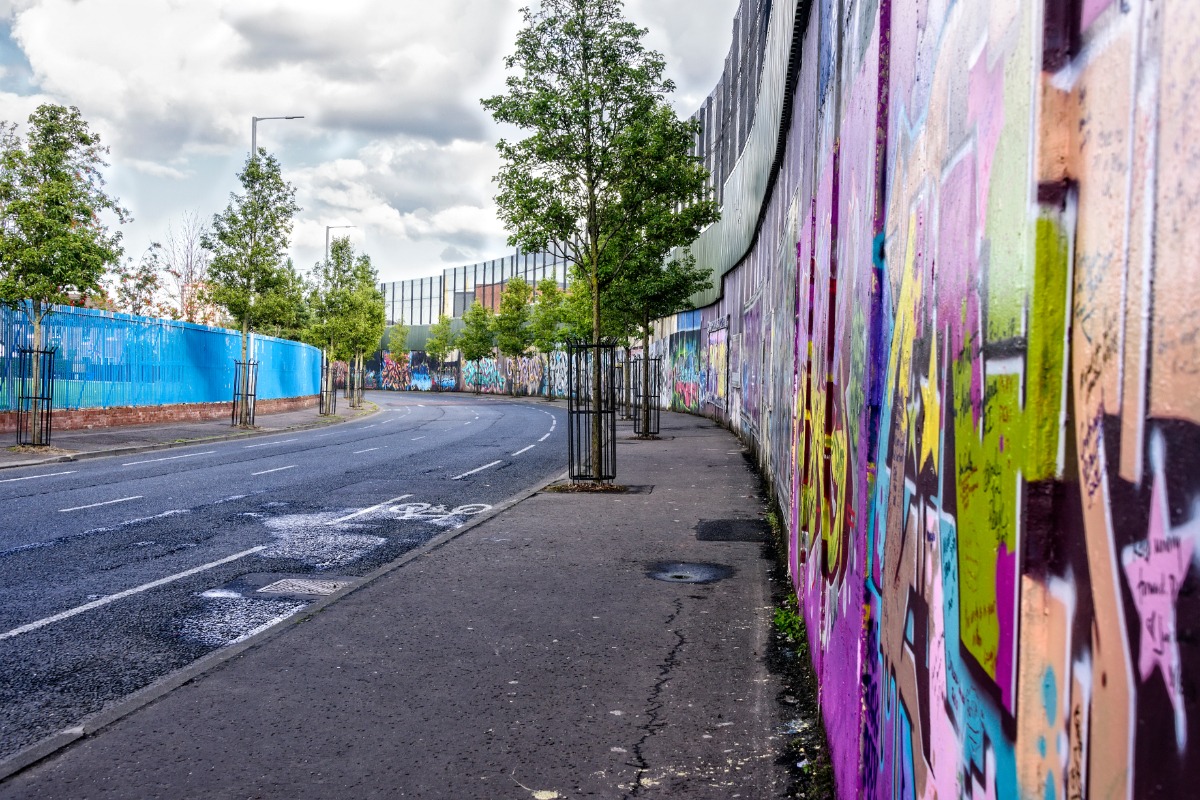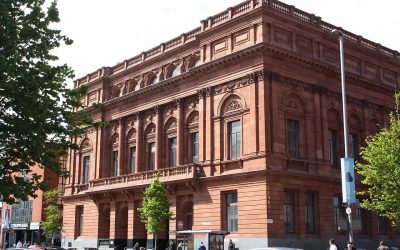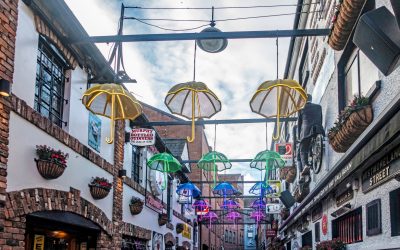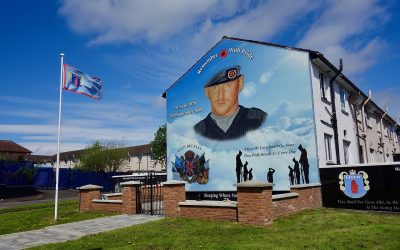The Peace Wall in Belfast is a powerful symbol of the city’s troubled past stretching for miles through various neighborhoods. The wall is a physical barrier that once divided communities during the Troubles, separating Catholic and Protestant neighborhoods and serving as a stark reminder of sectarian tensions.
Constructed in the late 1960s and early 1970s, the Peace Wall was intended to prevent violence and protect residents from the ongoing conflict. Made of concrete and steel, the wall stands as a somber testament to the divisions that once tore Belfast apart, with towering structures reaching heights of up to 25 feet in some areas.
Today, the Peace Wall serves as a living monument to Belfast’s troubled history and its ongoing efforts to heal and rebuild. Visitors to the wall have the opportunity to reflect on the city’s past and the impact of sectarian violence on its communities, while also witnessing the progress that has been made toward peace and reconciliation.
Despite its somber origins, the Peace Wall has become a site of hope and inspiration, adorned with colorful murals, messages of peace, and symbols of unity. These vibrant artworks depict scenes of resilience, solidarity, and hope, transforming the once bleak landscape into a canvas of hope and reconciliation.
Visitors to the Peace Wall can take guided tours, led by knowledgeable local guides who share stories of Belfast’s history, its struggles, and its triumphs. These tours offer a unique opportunity to gain insight into the complexities of the city’s past and present, while also learning about the ongoing efforts to build a more peaceful and inclusive society.
Whether you’re interested in history, politics, or simply want to learn more about Belfast’s journey toward peace, the Peace Wall offers a poignant and thought-provoking experience that’s not to be missed. So come and visit the Peace Wall, and join Belfast in celebrating its rich cultural heritage, embracing its diversity, and working toward a brighter and more peaceful future for all.




